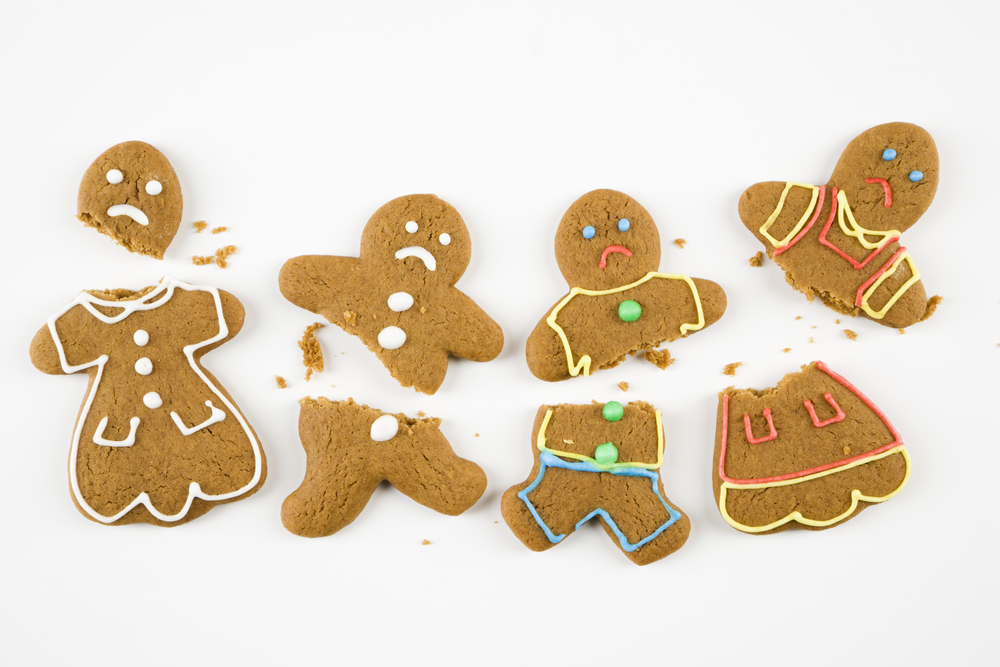Oh, the holidays. We’d all probably like to imagine ourselves sitting around a table spread sumptuously with fixings, decorative gourds and horns of plenty glinting sweetly in the candle glow — giving thanks for all that we have — and relaxing into the peace and togetherness of being with our friends and family. But that’s not the case for all or, maybe even most of us.
To say that the holidays can be tough is an understatement. Even if you and your angry uncle aren’t at each other’s throats over politics, Thanksgiving can be challenging. And for many of us, it’s the food and alcohol that’s triggering.
Whether you’ve struggled with addiction in the past, have a difficult relationship with food, or have a family member who doesn’t understand and challenges you on these issues — to everyone’s discomfort — the holidays can be a huge source of stress.
Managing Holiday Eating Triggers
Dealing with emotional triggers during the holidays poses unique challenges for everyone, but if you have struggled with disordered eating, you might be triggered by the rituals around that happens over the holiday season, and particularly the emphasis on overindulgence. Amy Cirbus, PhD, LMHC, and Talkspace Clinical Marketing Manager, gives four pointers to manage holiday overeating triggers, including:
- Incorporate mindful eating
Listen to your physical hunger cues and eat only until you’re full. Enjoy what you choose to eat! - Identify your support system
Find one person you can connect with and want to spend time with. This can reduce your stress and ensure you enjoy your time — and remember, avoid toxic people when possible. - Remember self-care
Be okay with declining a holiday invite. Don’t beat yourself up for a bad food day — being too hard on yourself can actually lead to more bad food days. Be kind to yourself. - Come up with a plan
To navigate stress that leads to unhealthy food choices, it’s important to have a gameplan. You might ask what the menu is ahead of time so you have the opportunity to bring a dish you’re comfortable eating.
These pointers are just suggestions, but if you find yourself feeling stressed or triggered by food or alcohol this Thanksgiving, try one of these tips and see if it helps. Having some strategies going in may decrease the stress and leave you better able to enjoy the holiday.
8 Steps to Reduce Holiday Stress
Managing the stress that triggers your unhealthy food and alcohol choices can actually help stop overeating before it starts. Cirbus explains that, “The holiday season is packed full with activities, expectations and stress. For a lot of people, keeping food and alcohol intake on point and in check can feel impossible. There are steps to take in order to reduce the intensity of the season.”
Below are eight ways to reduce your holiday stress so that you can better connect with the spirit of the holiday, gratitude.
- Acknowledge your triggers
Identifying triggers is essential to managing and avoiding them when possible. - Have a plan
Having a basic strategy reduces anticipatory anxiety and leaves you room to breathe. - Set time limits
The later it gets the less likely that common sense reigns. Decide on an appropriate exit plan. - Identify a safe person
Having that one person in a room full of stress can make all the difference. - Avoid heading out hungry
Before a festive dinner or holiday social, eat something you feel good about. It’s the difference between feeling fulfilled versus restricted. - Schedule in self-care
This time of year can suck the energy right out of you. Rejuvenate your body and mind, and make sure that you have extra time just for you — it can make all the difference. - Cut yourself some slack
When you have a bad day, let it go. Start fresh tomorrow. - Talk about it
You’re not alone and there’s no shame in sharing your struggles with those who care about you. Talking about how tough this time of year is helps reduce the pressure.
While everyone’s mental health journey is different, we’ll continue to share tips and strategies for navigating the holidays.
Originally published on Talkspace.
More from Talkspace:
What to Expect From Your First Online Therapy Experience
How To Maintain Independence While in a Relationship
5 Signs of Acute Stress Disorder
Follow us here and subscribe here for all the latest news on how you can keep Thriving.
Stay up to date or catch-up on all our podcasts with Arianna Huffington here.


